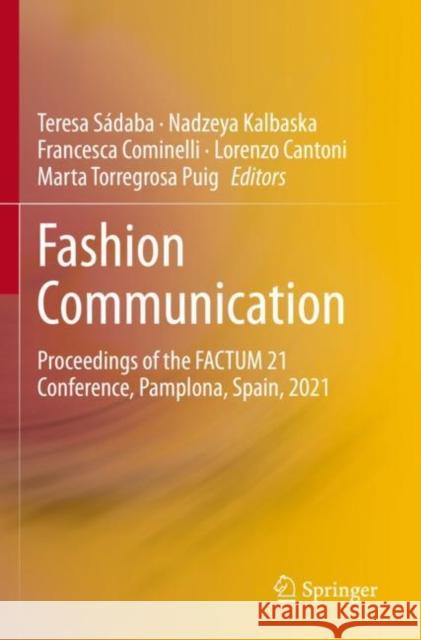Fashion Communication: Proceedings of the Factum 21 Conference, Pamplona, Spain, 2021 » książka
topmenu
Fashion Communication: Proceedings of the Factum 21 Conference, Pamplona, Spain, 2021
ISBN-13: 9783030813239 / Angielski / Miękka / 2022
Fashion Communication: Proceedings of the Factum 21 Conference, Pamplona, Spain, 2021
ISBN-13: 9783030813239 / Angielski / Miękka / 2022
cena 724,58
(netto: 690,08 VAT: 5%)
Najniższa cena z 30 dni: 693,97
(netto: 690,08 VAT: 5%)
Najniższa cena z 30 dni: 693,97
Termin realizacji zamówienia:
ok. 22 dni roboczych.
ok. 22 dni roboczych.
Darmowa dostawa!
These conference proceedings are the output of one of the first academic events of its nature happening globally, targeting fashion from a communication sciences perspective, including, in a broad sense, cultural heritage studies and marketing. The chapters present theoretical and empirical interdisciplinary work on how various communication practices impact the fashion industry and on societal fashion-related practices and values. The special focus of this volume is how digital transformation is changing the field and its utility to practitioners. Using these academic insights, practitioners can understand the core causes and reasons for trends and developments in the field of fashion communication and marketing.











